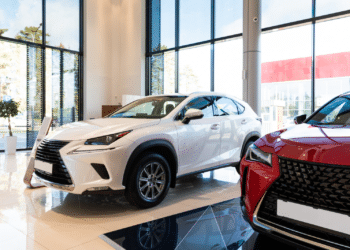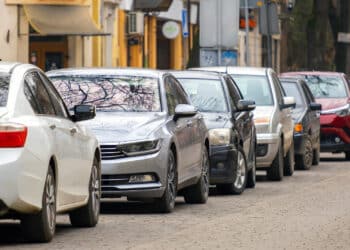The Internet: The Dealership of the Future?
Today, when people decide to buy something, they go online first. They research products and models, look at pictures, read professional and user reviews, try to find the site offering the best deal, then at some point, they click “add to cart,” check out and wait for the package to arrive at their doorstep.
Why can’t this be done with car purchases? To put it more bluntly, does the world still need car dealerships?
Before I defend the position of eliminating car dealerships, I’m willing to concede certain points in this debate. I’ll concede that a car is a major purchase ― in some cases, the largest purchase that an individual will ever make. It involves a lot of money, and transactions like that may be more comfortably executed in person. Today. I will not concede that this will always be the case. Furthermore, as is the case with major purchases, people may want to physically see, feel, and drive the car before buying it. I understand that. Again, I do not think this will always be the case.
The only reason I go to a store to buy anything today is because I need it today. If I don’t need something immediately, I’m going to buy it online. I think that’s true with a lot of people. In many cases, the items I buy online are cheaper than what I can find in retail stores, and I save the hassle of driving, parking, and weaving through check-out lines while also saving on fuel and wear-and-tear on my car and my psyche (can you tell I’m not a fan of malls?).
Nobody buys a car because they need it today. They may rent a car because they need it today, but nobody buys one for that reason. And most rental car reservations are done online. I’ve never heard of anyone going to a rental car location and asking to test drive a car before reserving it.
Think of the economies of scale and cost savings that could result in lower car prices? Cars could be housed in massive storage facilities in low-cost areas (as was pointed out at a recent conference, ever realize that most dealerships are in prime real estate locations?) and shipped when purchased.
Most manufacturers assemble vehicles using a “just-in-time” strategy. This involves having the parts delivered only when the manufacturing plant is about to run out. This reduces inventory and storage costs. Why not apply the same methodology to the finished product?
Financing could be applied for online and completed electronically. There would be no need for haggling with a salesman, reducing the stress that often accompanies a trip to a dealership.
Buyers would be able to custom order their vehicles online. This would avoid a situation where buyers must shop around at different dealerships looking for the color or features they want, and sometimes settling.
Cars would be delivered to your door (big ribbon and bows would be extra). This alleviates the need of finding someone to take you to the dealership to pick up your car. If you’re trading in a vehicle, the old car could be exchanged for the new one in your driveway.
Manufacturers would not need to fill up dealership lots and would not force dealers to buy more cars than they need to keep production moving.
Remember the scandal that erupted when General Motors and Chrysler were forced to shutter dealerships as part of their federal bailout? The world kept turning. The sun kept rising and setting. Car sales for either manufacturer didn’t plummet. I’m not advocating this as a means of putting people out of work. There are still going to be plenty of jobs in the car industry if dealerships vanished.
The auto industry needs to embrace new ideas and continue to innovate. Continuing to do business the same way just because it’s the way business has been conducted for the past 100 years isn’t a good enough answer. Everything should be on the table.










